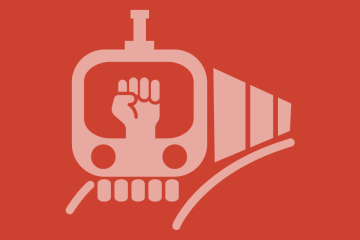The Communist Party of Canada (Ontario) stands in full solidarity with autoworkers, Unifor Local 222, Local 88, and all workers and communities devastated by the latest wave of layoffs at General Motors’ Oshawa and Ingersoll plants. The elimination of 700 jobs in Oshawa and 500 in Ingersoll—which follow temporary layoffs of 3,000 workers at Stellantis in Windsor last month and combine with 1,500 additional layoffs in the supply chain—exposes the unchecked power of the auto monopolies and the role of successive Liberal and Conservative governments in facilitating the theft of public funds.
While the trade war actions from the Trump administration are new, these layoffs are not isolated incidents. They are part of a decades-long assault on workers’ livelihoods and sovereignty in Canada, enabled by free trade deals like the USMCA, which empower corporations, pit workers against each other across borders, and sacrifice entire communities for higher profits. With over 100,000 jobs in Canada directly tied to auto parts and assembly, and hundreds of thousands more in communities built around this industry, we cannot let these layoffs continue without a fight.
The solution is clear: it’s time to take auto out of corporate hands and put it under public ownership and democratic control.
For over a century, GM has operated in Oshawa, first with public handouts, like the City of Oshawa’s $50,000 interest-free loan in 1899 to the company that would become GM, and most recently, in 2022, with $259 million in direct grants from the Ontario government to “secure” investment in the same facilities now issuing mass layoffs. In 2009, GM received $10.5 billion in a bailout from the federal and Ontario governments. While the public took a loss of nearly $3 billion at the end of the agreement, GM demanded massive concessions from workers and retirees. Now, it is laying off those same workers to curry favour with the Trump administration and shift production to Indiana. Enough is enough.
In recent years, public money has been shovelled into the Electric Vehicle (EV) transition with no guarantees, no ownership, and no long-term plan for workers or communities. The Ontario and federal governments have handed billions in subsidies to GM, Stellantis, Volkswagen, Honda, and Ford, and $28 billion to Volkswagen and Stellantis alone. This is not a “just transition”; it’s state monopoly capitalism, in which the government transfers public wealth into private hands. And it’s failing workers, the environment, and Indigenous peoples, whose lands are being raided for battery minerals without consent. We reject this profit-driven model and demand a real green industrial plan based on public ownership of the auto sector, starting with GM.
Monopoly capitalism is so entrenched in Canada that many find it difficult to imagine nationalizing an industry. But when it comes to capital’s interests, the political will exists for major state intervention. With a fight, it is possible to nationalize the auto sector and make it a central pillar of a necessary green transition by building an affordable, electric Canadian car and converting manufacturing to mass transit. We need to fight for a transition where workers are not left behind, including by bringing the fossil fuel industry under public ownership to facilitate an economic transition that protects the environment while guaranteeing jobs at equal pay in new, sustainable industries.
The layoffs in Oshawa and Ingersoll are symptoms of a system that puts corporate profit ahead of people and communities. The response cannot be to beg foreign corporations to stay. The response must be solidarity across the labour movement, and a bold, mass, united fightback to demand that governments fight for a people’s sovereignty and roll back the power of corporations, both foreign and domestic.
We say:
- Nationalize the auto industry, to guarantee jobs and wages
- Build a domestic auto manufacturing sector under public ownership and democratic control and operation, to produce electric passenger vehicles, light industrial vehicles and expand mass transit manufacturing (buses, light rail), while meeting climate goals
- Enact plant closure legislation with real power, requiring corporations to justify closing or moving plants and to repay every dollar of public subsidies before closure
- Strengthen Employment Insurance to cover all unemployed workers at 90% of wages for the full duration of unemployment
- Withdraw from corporate trade deals like USMCA, and pursue multilateral trade on a mutually beneficial basis with countries throughout the world



